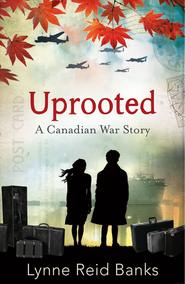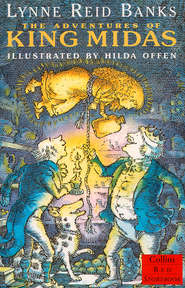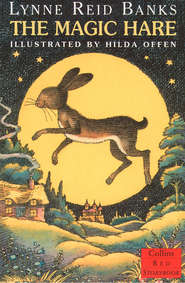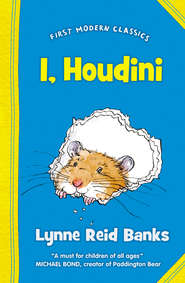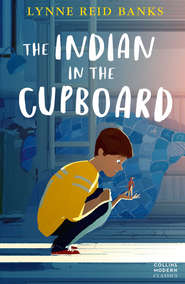По всем вопросам обращайтесь на: info@litportal.ru
(©) 2003-2024.
✖
The Dungeon
Настройки чтения
Размер шрифта
Высота строк
Поля
There was a bad moment of silence. Then McLennan said, in an unnaturally quiet voice, ‘Lightning doesna strike the same place twice.’
The man had the sense to say no more on that subject. Instead he said respectfully, ‘I trust ye’ll no’ run into danger yourself, sir.’
‘I trust I will,’ returned McLennan obscurely.
The foreman thought he had misheard.
‘How long will ye be away, sir?’
McLennan lost patience and roared at him. ‘How the blazes d’ye expect me to know that? My plan is to travel to the far ends of the earth. Whatever I find there, I’m planning to see plenty of it, before I turn around and come back!’
The foreman looked at the plans again. When his laird flew into these sudden rages, it was better not to meet his eyes.
‘Sir?’ he ventured timidly.
‘Well?’
‘I see no chapel on the plans.’
‘That’s because there will be none.’
Now the man’s head did come up, and he looked at his master. Bruce McLennan towered over him. He had flaming red hair and a bushy red beard. His strong, bare legs below his kilt were planted apart; his arms, brawny and hairy as a pig’s flanks, were folded across his chest, compressing his plaid which blew back in the wind. He looked a mighty man indeed. Not one to cross – every man present knew that.
‘No – place of worship, m’laird?’
‘Not in my castle. If, outside it, ye feel the need for a church, ye can build one, but in your ain time and with your ain money.’
There was a tense silence. Was there a touch of blasphemy here? Many eyes went to Master Douglas, who was reputed to be a devout Christian; but if he had felt scandalised on first learning of this unheard-of omission, he showed nothing now.
‘How long have we to complete the work?’
‘Here is the only answer I’ll give ye,’ said the master. ‘When I choose to come back, my castle had better be standing up against yon sky, and my dungeon had better be below it. If not, I’ll hang the lot o’ ye from whatever ye have built. Do I make myself understood?’
There was a cowed silence around the dungeon pit. There was hostility in that silence, too, but it was lost on their master. Though once he had been different, now he cared nothing for their good opinion so long as they obeyed him. And obey him they must, for he was their liege-laird, and they his tenant-serfs, not much better than slaves.
Half an hour after the last workman had left the site, and McLennan had retired to his house to prepare for his journey, a young boy called Finlay McLean climbed up the disturbed and treacherous slope. The sun had set beyond the river and the lad had to grope his way forward and upward over the shifting ground in deepening twilight. Several times he lost his footing and slipped and slithered down several feet, and once he fell forward on his belly and had to dig his fingers into the loose soil and stones to stop himself sliding to the bottom of the crag.
Once he had gained the levelled top, he doubled up and ran to the edge of the dungeon pit. He feared the master might be watching from his window at the foot of the hill and see his silhouette. But when he reached the pit’s edge he knew he would be hidden from below, and he straightened up and stared downward into the darkening depths.
He couldn’t rightly see through the shadows to the bottom. He thought he might as well be looking down into The Pit as described by the priest in the course of his many warning sermons. Fin fancied if he stumbled over the edge, he would fall and go on falling till he reached that furiously burning region in the middle of the earth, where the damned were subject to unending torment.
Yet the curiosity that had brought him up here, held him.
He knew who this dungeon had been dug for. His name was Archibald McInnes, a name Fin had never heard spoken aloud, even by his father in his own home – a farmhouse two miles away – from where he came to work in the master’s stables. In whispers they spoke that name, and that name’s crimes, crimes that had changed a good man, a good laird, into one to be feared. The whispers told how the whole feud had begun, with a dispute over the border between the lands of the two lairds who were neighbours. How there had been a skirmish in which the neighbour’s nephew had been killed. And what followed, a tale too terrible to be told before a child; but Fin had heard it anyway, as children do who have their ears open on the brink of sleep when adults think they are over that brink, and speak more freely than they should.
A terrible tale. A dreadful happening, dark with blood and cruelty, a crime crying out for vengeance. Yes, thought Fin, shivering as he peered into the blackening depths as the sky darkened over him. If his master captured McInnes and brought him back here – as clearly he meant to, one day, when his castle was built and he had enough men owing him allegiance to be sure of success – the villain would deserve to be hurled down there, down, down, into the pitchy gloom, however deep it went, and never to be seen on the warm bright surface-earth again.
Fin was in the stables of the manor house a week later, on the day Bruce McLennan set off on his travels. He had not had the honour of grooming and saddling his horse. Robert the head groom did that. Nor was it Fin who led the animal out and handed the reins to the master. But it was Fin’s job to hold the opposing stirrup as the laird mounted. He had almost to swing on it to balance the master’s weight and keep the saddle from slipping.
McLennan didn’t notice the young tow-headed lad level with his heel as he swung himself into the saddle. He couldn’t know, as he scraped the boy’s knuckles with his boot, what a fateful role this grubby nondescript boy, staring up at him in awe, would play in his future. He left him behind as he left everything behind, and rode away without a glance back.
He’d had no one to say goodbye to. He had handed the keys of his house to Master Douglas. It was full of appalling memories and he was glad to be shot of it for ever. He wouldn’t need it when he came back. He’d have a castle to live in by then – a castle with a dungeon. The idea of it was like balm spread over a wound, in a place in his soul even deeper than the dungeon pit.
‘Do unto others!’ he thought fiercely as he rode. So said the scriptures. Aye. Do unto others as they have done unto you.
He rode down the length of the northern island that comprises Scotland, England and Wales, to its south coast. This took days – and several horses, for he was a hard rider. He put up at wayside inns when he found them, and when he didn’t he would camp outdoors. When there was a reasonable road (the best had been built by the Romans ten centuries before) and some moonlight, he would ride far into the night to put off having to sleep alone under the sky, or eat and drink without company to distract his mind.
Sometimes when he was sitting by a campfire on some desolate moor or under some ancient oak in the depths of a forest, memories would come back to him of his childhood in a modest croft on the island where his father was a fisherman and his mother spun sheep’s wool and wove cloth from it to sell. He remembered these two people he had loved, and his brothers and sister, and the happiness he had known as a wild young boy, torn between family affection and a driving restlessness. Sometimes he even thought he could smell the good smells of fish and the sea, of the steaming soap-vats in which his mother washed the wool; he would hear the sounds of young lambs in the spring bleating for the ewes, and feel the warmth of his bed with his brothers sleeping close to him while the peat fire made a glow on the low, whitewashed ceiling until it died away.
These pleasant memories had a double power. They let him relive his happy, humble childhood, and they made him proud, by contrast, of his present high position. It was not often a fisherman’s son rose to become a laird, owner of a large estate with command over several hundred tenant-serfs who owed him unquestioning loyalty. And he had earned this elevation, not merely inherited it.
He might have blushed to remember why he had resisted becoming a fisherman like his father – seasickness – but he had forgotten that. What he remembered was travelling south alone to volunteer in the King’s service against the English, who were striving fruitlessly but bloodily to subdue Scotland. He did the King great service, even saving his life on one occasion when he was thrown from his horse on the field of battle. What a piece of miraculous good fortune that the young McLennan had been nearby at that fateful moment. Nineteen years old, strong and quick and with the recklessness of a highland bull, McLennan had fought his way swiftly to his monarch’s side, and carried him over his broad shoulder to safety while the horses trampled and neighed and the swords clashed around him… For this action, the King had rewarded him royally with land and gold, and put him in the way of a beautiful highborn wife.
But when his proud recollections reached this point, McLennan seized hold of them and slammed a door on them, a door as thick and ironbound as the one he had ordered for his dungeon.
At last he reached the south coast. He wandered from port to port in growing impatience, haunting the quayside taverns, hungrily watching and listening. But he could only hear of ships sailing to ports in Europe. They were not what he wanted.
Then his luck changed. He had drifted up to the Port of London. Most men from the north who had never before seen the biggest town in the islands would have spent hours and days exploring the bustling streets, some grand, some vice-ridden and squalid, yet offering much entertainment… But McLennan was single-minded. He made straight for the dockside and there, in a cheerful tavern reeking of stale ale and unwashed bodies, he met a common sailor who had heard the stories he himself had heard.
‘Ho, yus, Marco-Polo-land! Chi-na, they call it. It’s a rare place, they say! But you can’t sail all the way there,’ he went on, when McLennan had stood him some ale. ‘You’d have to do as he did, the Venetian, sail to St. Jean d’Acre, the port of the Crusaders in the Holy Land, or to Constantinople – that’s in Turk-land, I been there! – and after that you must go by land. A year’s journey, they say, or more if the weather’s against you, along the road the silk comes by.’
‘Silk? What’s that?’
‘Wot, ain’t you heard of silk? I ain’t never seen it, but they say it’s the most wonderfullest stuff in the world,’ the sailor said.
‘Is it food?’ asked McLennan.
The man blew his ale out in a spray of laughter. ‘Course not, it’s not for eatin’! It’s for wearin’! But you’ll never feel the touch of it on your back. How they make it’s a secret – it’s not something that grows from the ground. I heard a venomous spider spins it, and only them that’s immune to its poison can harvest it. It’s that rare and costly, only royalty, or highborn lords and ladies, can buy it! It has to be brought a journey of ten thousand miles, they say, across land where no civilised man can live, for it’s all desert and icy mountains, and the way plagued by tribes of the fiercest riders and fighters in the world.’ He lowered his voice and put his mouth close to McLennan’s ear. ‘Ain’t you never heard of the Mongols and Tartars?’
McLennan shook his head. His heart was beating with excitement. This was what he had dreamed of. A dangerous venture that would shut out the past and truly test his mettle!
‘They’re the most monstrous cruel men God ever made,’ the man continued in a whisper, as if a Mongol horde might even now ride into this dingy tavern and slaughter the drinkers. ‘They’ve conquered all the lands of the east! Chi-na, too. They rule it now, and the Chi-na men can like it or lump it. ’Tis said they’ve the best army since the days of Rome. Nay, better! They fight on horseback, and each man rides as if him and his horse were one beast. As to their natures—’ he grimaced. ‘Say no more! If a town resists ’em, they wipe it out, down to the last man, woman and child!’ And he made a throat-cutting gesture, accompanied by a graphic squelching sound. ‘And that’s their best weapon, for after a few massacres of that sort, none dare stand against them, so they’re unbeatable!’
McLennan closed his eyes suddenly. Throat-cutting was a horror very fresh in his memory. But he set his teeth and opened his eyes again, speaking more sharply than he had meant. ‘How can I get to the Turk city you named?’
‘Plenty of ships going there, it’s one of the great ports for the spice and gem trade,’ said the sailor. ‘See that captain over there? His ship’s bound for the Mediterranean on tomorrow’s tide. If you’ve money enough, go ask him if you can be his passenger.’
McLennan was canny. He didn’t want to pay too much. He waited till the captain of the ship bound for Constantinople was reeling drunk to approach him and strike his bargain.
The voyage was long and dangerous, but McLennan didn’t mind danger. He liked it. He’d lived with danger all his life, and he never felt fully alive if he was completely safe. Besides, the thrill of fear drove out thoughts.
What he didn’t like was rough seas. In the Bay of Biscay, off the coast of Portugal, there were violent storms that threw the ship about like a cork; its crew had to struggle against wind and waves, holding on to lifelines on deck, and lashing themselves to the yards, and even so, two were swept overboard. Passengers were ordered to keep below decks.
At first this infuriated McLennan, but he was soon forced to remember he was a bad sailor. It humiliated him to be brought low with seasickness. After bouts of vomiting he would lie groaning on his hard bunk, cursing this half-forgotten weakness.
But when the sea wasn’t rough, he spent a lot of time standing at the ship’s rail, dreaming of the foreign land which was the goal of his journey.
How, in his distant Scottish home, had he heard of this exotic place? Some time ago a wandering pedlar had called on McLennan. He had but one arm, and the smell on him of foreign parts, and while he showed his wares, he hinted he’d been to sea as a pirate, and dropped more hints of fabulous tales he could tell.






